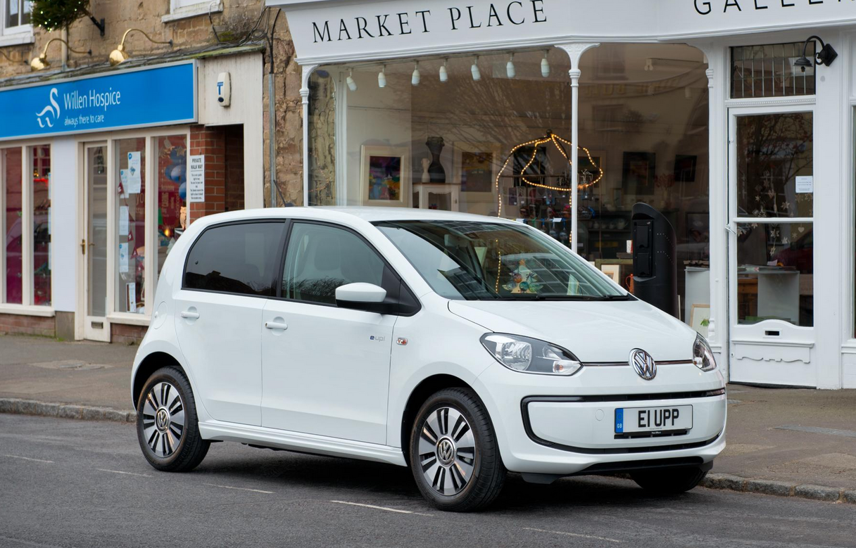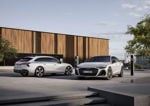Review
At first glance, you probably wouldn’t notice the new Volkswagen E-Up. The firm’s electric debut is discreet, with only a few blue decals alluding to its EV powertrain.
That’s because, unlike ground-up EVs, the bodyshell is based on the standard five-door car. This means the vehicle uses the excellent dash and interior from the High Up trim, along with extras such as a heated windscreen, DAB radio, and rear parking sensors.
The conversion to electric has been kind, losing only one litre of boot space, and 28 litres from total space with the rear seats down. There is a weight increase of 199kg, although an 82hp electric motor replaces the 60hp petrol engine.
A full charge using a three-pin plug takes nine hours, but faster charging options are available. Volkswagen recommends drivers take up British Gas’ government-funded free domestic wall-box charger installation, capable of charging the vehicle in six hours.
Using a fast charge facility, the E-Up reaches 80% capacity in 30 minutes, meaning longer journeys aren’t out of the question.
It’s worth noting the higher the speed, the faster the range depletes. Our test drive included around 15 miles of dual carriageways at the national speed limit, knocking 30 miles off the available range. The E-Up’s speedo shows a ‘blue range’, which at 30-50mph provides optimum efficiency.
There are several eco options that increase the vehicle’s range. Eco and Eco+ modes reduce power output to 68 and 54ps respectively, while Eco+ also disables climate control.
The E-Up’s trump card is clever use of regenerative braking. Drive modes D1, D2, and D3 introduce regenerative braking that applies the brake lights and turns the motor into a generator, pumping the recovered energy back into the battery.
In ‘B’ mode, the regenerative braking is to such an extent the vehicle can slow to a standstill without applying the brake. It’s a strange sensation to begin with, but in a stop-start environment, quickly becomes second nature.
Volkswagen has modest UK expectations for the E-Up’s first year, expecting to sell around 250 vehicles through a network of 24 dedicated EV retailers. The main setback for this £19,250 vehicle is the £8,000 price premium over the highest specification petrol vehicle.
The E-Up appears to offer good value, as the battery is fully owned (with an eight-year warranty), unlike the battery lease on the Renault Zoe. At 51.36p per mile on a 48 month/40,000 mile cycle, it is 0.78p cheaper per mile than a Nissan Leaf, and 5.85p cheaper per mile than the BMW i3.
If the German giant’s first EV is anything to go by, the other electric and hybrid vehicles due across the Volkswagen Group this year will be very promising indeed.
Author:
Christopher Smith
Specs
| Manufacturer | Volkswagen |
| Model | e-Up |
| Specification | |
| Model Year | 0.00 |
| Annual VED (Road tax) | £0 |
| BIK List Price | £24,195 |
| CO2 | N/A |
| BIK Percentage | 0% |
| Insurance Group | N/A |
| CC | N/A |
| Fuel Type | Electric |
| Vehicle Type | |
| Luggage capacity (Seats up) | N/A |
Running Costs
| P11D | £24,195 |
| Cost per mile | 35.81ppm |
| Residual value | £5,886 |
| Insurance group | N/A |
| Fuel Type | Electric |
| Cost per mile | 0.00ppm |
| Fuel | 0.00ppm |
| Depreciation | 0.00ppm |
| Service maintenance and repair | 0.00ppm |
Info at a glance
-
P11D Price
£24,195
-
MPG
99.0 -
CO2 Emissions
N/A -
BIK %
N/A -
Running cost
3 Year 60k : £5,886 4 Year 80k : £4,681 -
Fuel Type
Electric
















